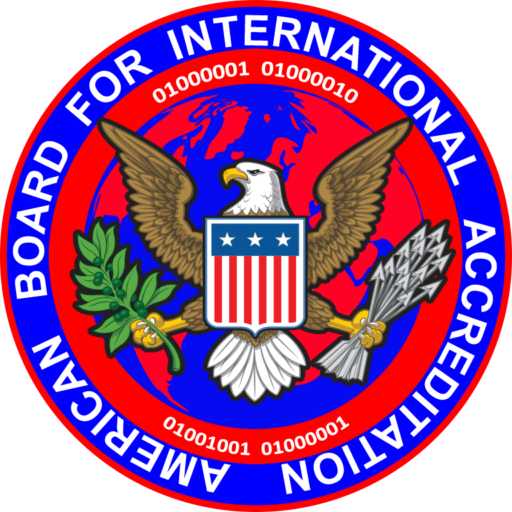Business
Education Excellence
Elevating Educational Quality
At American Board for International Accreditation, we take pride in accrediting educational institutes, curriculums, trainers, and teachers. Our rigorous evaluation process ensures that institutions and individuals meet high standards of excellence.
Here’s what we offer:
- Institute Accreditation:
We assess educational institutions, from schools to universities, and private educational institutes, to ensure they maintain quality standards.
Our accreditation process evaluates factors such as faculty qualifications, infrastructure, teaching methodologies, and student outcomes.
Having our accreditation provides credibility and trust to students, parents, and employers. It signals that the institute is committed to delivering quality education and adheres to best practices.
- Curriculum Accreditation:
Our team reviews curriculums to ensure they align with educational goals and industry requirements. We assess content, pedagogy, and learning outcomes.
Accredited curriculums enhance student learning experiences, preparing them for real-world challenges. Employers recognize graduates from accredited programs as well-prepared and competent.
- Trainer and Teacher Accreditation:
We evaluate trainers and teachers based on their qualifications, teaching methods, and student engagement. Our goal is to enhance teaching effectiveness.
Accredited trainers and teachers inspire confidence in learners. Their expertise contributes to better learning outcomes and overall educational quality.
Why Accreditation Matters
- Quality Assurance: Accreditation ensures that educational processes meet defined standards. It guarantees that students receive a valuable education.
- Transferability: Credits earned at accredited institutions are more likely to transfer to other schools or universities.
- Employability: Employers value degrees and certifications from accredited institutions. It reflects a commitment to quality education.
- Continuous Improvement: Accreditation encourages institutions to continually improve and adapt to changing educational needs.
Steps for Accreditation
- Self-Study: The institution conducts a comprehensive self-evaluation, analyzing its programs, resources, policies, and procedures against the accrediting body’s standards and criteria.
- Application: The institution formally applies for accreditation by submitting the self-study report, supporting documentation, and the required application materials to the accrediting agency.
- Site Visit: A team of peer reviewers from the accrediting agency visits the institution to validate the self-study report, review facilities, interview faculty, staff, and students, and gather additional information.
- Peer Review: The site visit team prepares a report based on their findings, which is then reviewed by the accrediting agency’s commission or decision-making body.
- Commission Review: The commission carefully evaluates the institution’s application, self-study report, site visit report, and any additional evidence to determine if the institution meets the accreditation standards.
- Decision: The accrediting agency communicates its decision to the institution, which may grant accreditation, deny accreditation, or require additional actions or improvements before granting accreditation.
- Ongoing Monitoring: If accredited, the institution is subject to periodic reviews, typically every few years, to ensure continued compliance with accreditation standards and to maintain its accredited status.
- Reaffirmation: The institution undergoes a comprehensive re-evaluation process periodically, usually every 5-10 years, to reaffirm its accreditation status.
